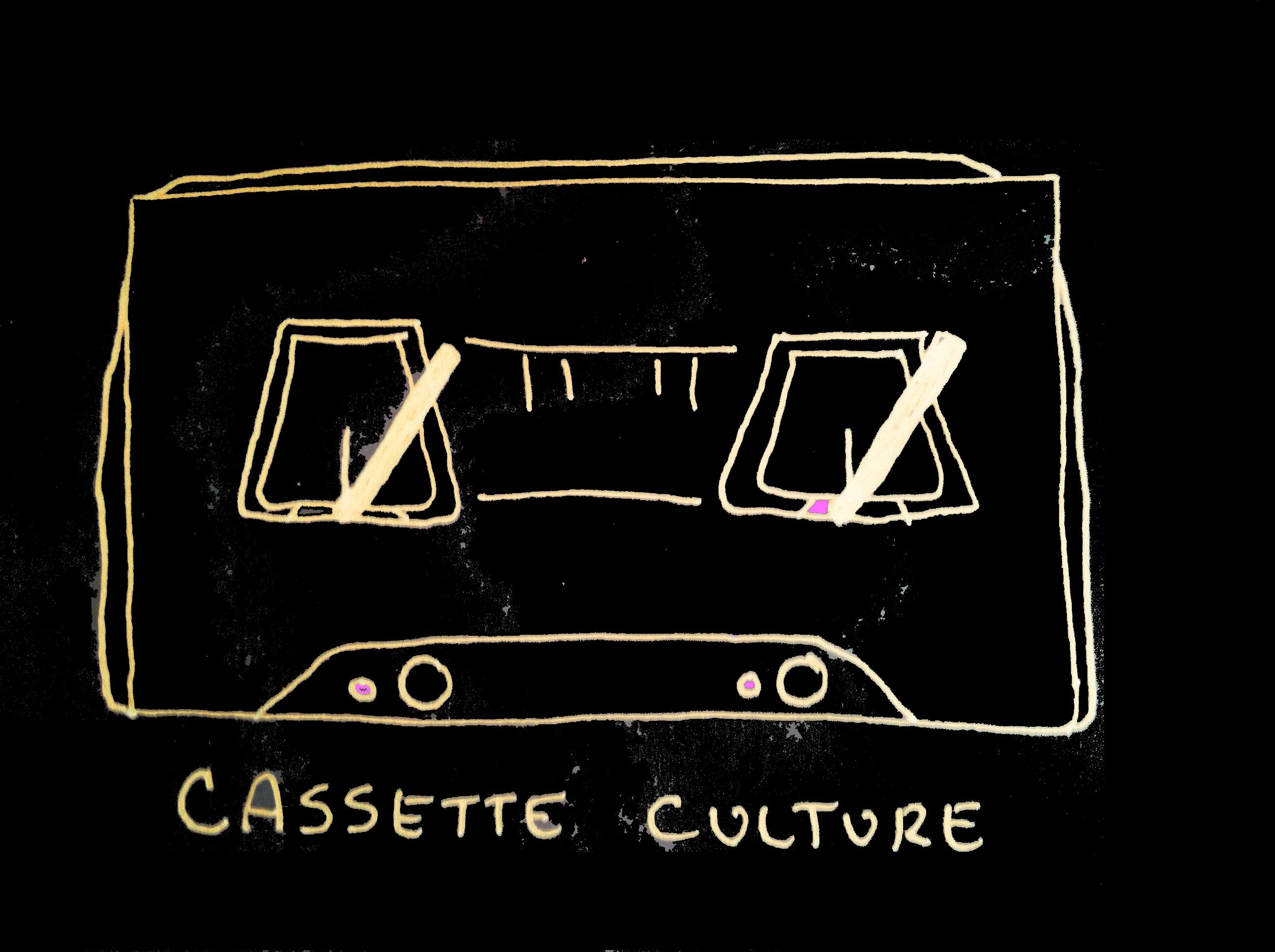Cassette Culture is a monthly column dedicated to exploring the various artists that inhabit the expansive cassette market. Drawing from bands and labels around the world, this column will attempt to highlight some of the best artists and albums from this global community.
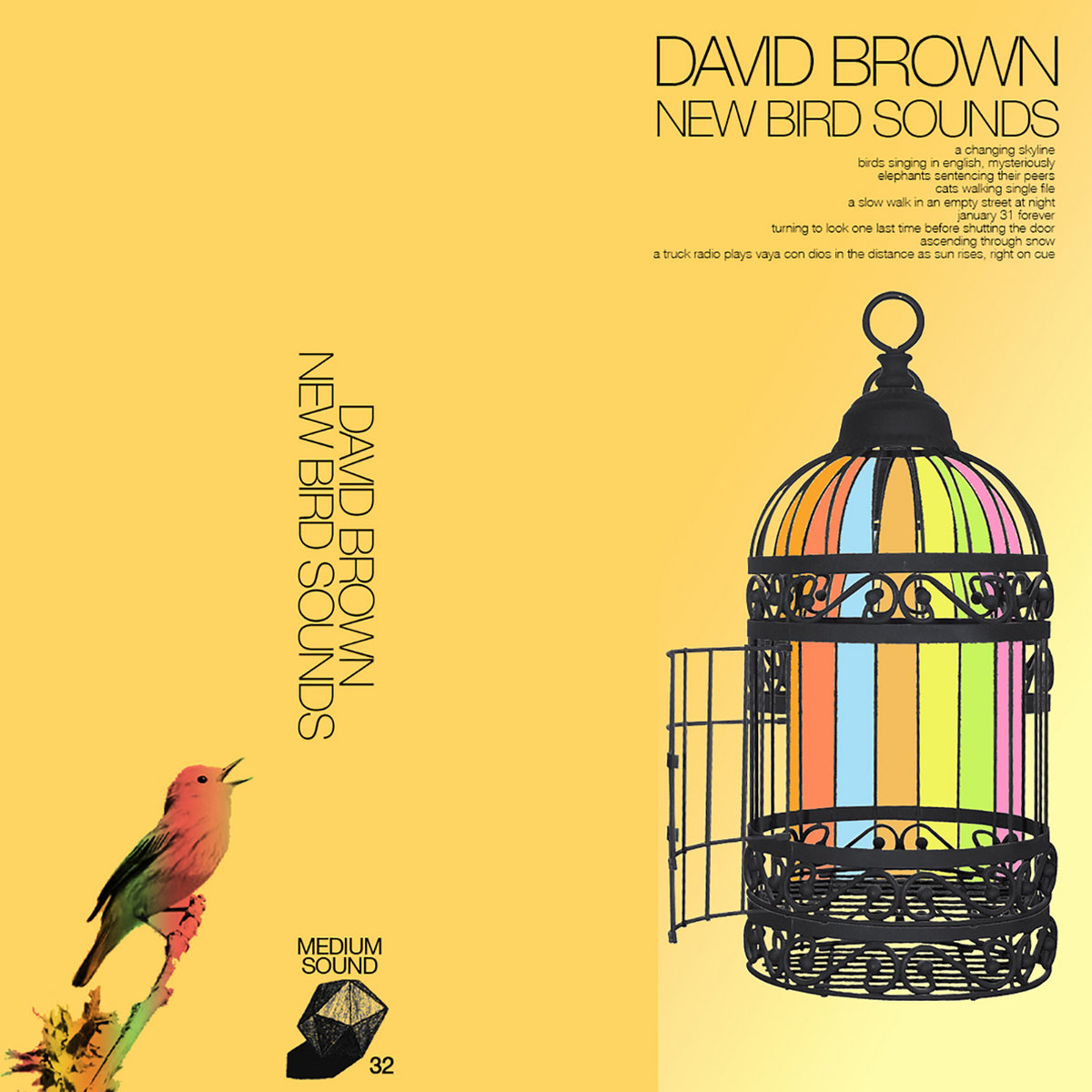 David Brown
David Brown
New Bird Sounds
(Medium Sound)
Bloomington composer David Brown enjoys creating musical symbiosis. His new album, New Bird Sounds, is self-described as “Hooiser musick” and finds him blending tape experiments with gorgeous string arrangements and improvisational horns and keys. He charts a rather radical course through these sounds, allowing each to mold their contours around the others. There’s no primary musical avenue here, only the feeling of something constantly changing to suit its moods. Droning violin and viola fold themselves into a daunting canvas of electronic manipulation, finding an odd sort of resolution in the way Brown organizes each track. There is beauty and wonder present but also a sense of uncertainty as where it’s all going. And that’s part of the magic of these songs; you never know where you’re going to end up. He circumnavigates our expectations and positions us in a way so that we feel the full weight of these hypnotic compositions and the inspirations that led to their creation.
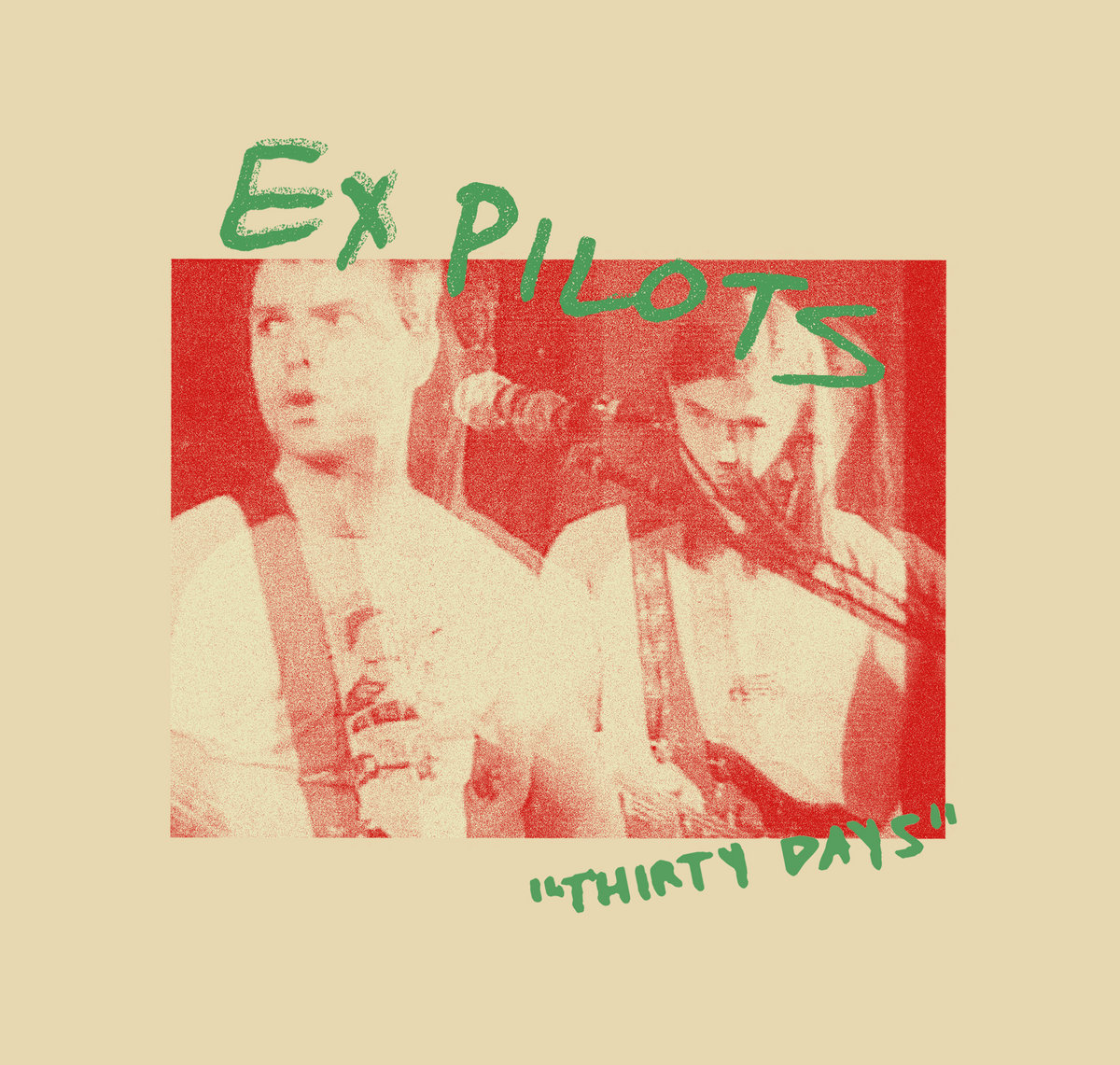 Ex Pilots
Ex Pilots
Thirty Days
(Smoking Room)
The sound comes quickly, a deafening roar filled with pounding drums and ragged guitars, seemingly inspired by a music collection filled with as many shoegaze and punk bands as they could find. Pittsburgh band Ex Pilots aren’t shy in how they acknowledge their influences, but they also aren’t afraid to scramble them beyond recognition. Thirty Days, their new two-song release, featuring “Thirty Days” and “Liars”, is a great intro to the band’s frenetic musical weltanschauung, a whirlwind of dense guitar theatrics in the case of the former and something far more atmospheric in the latter. At first glance, these songs seem to be polar opposites, but if you listen a little closer, you’ll hear their common roots in shoegaze, dream-pop, and something that feels a bit craggier. The band is expected to release their debut LP sometime later this fall, and if these songs are any indication, they’ve already fixed their sights on a cacophony that’s equal parts brute force and adaptation.
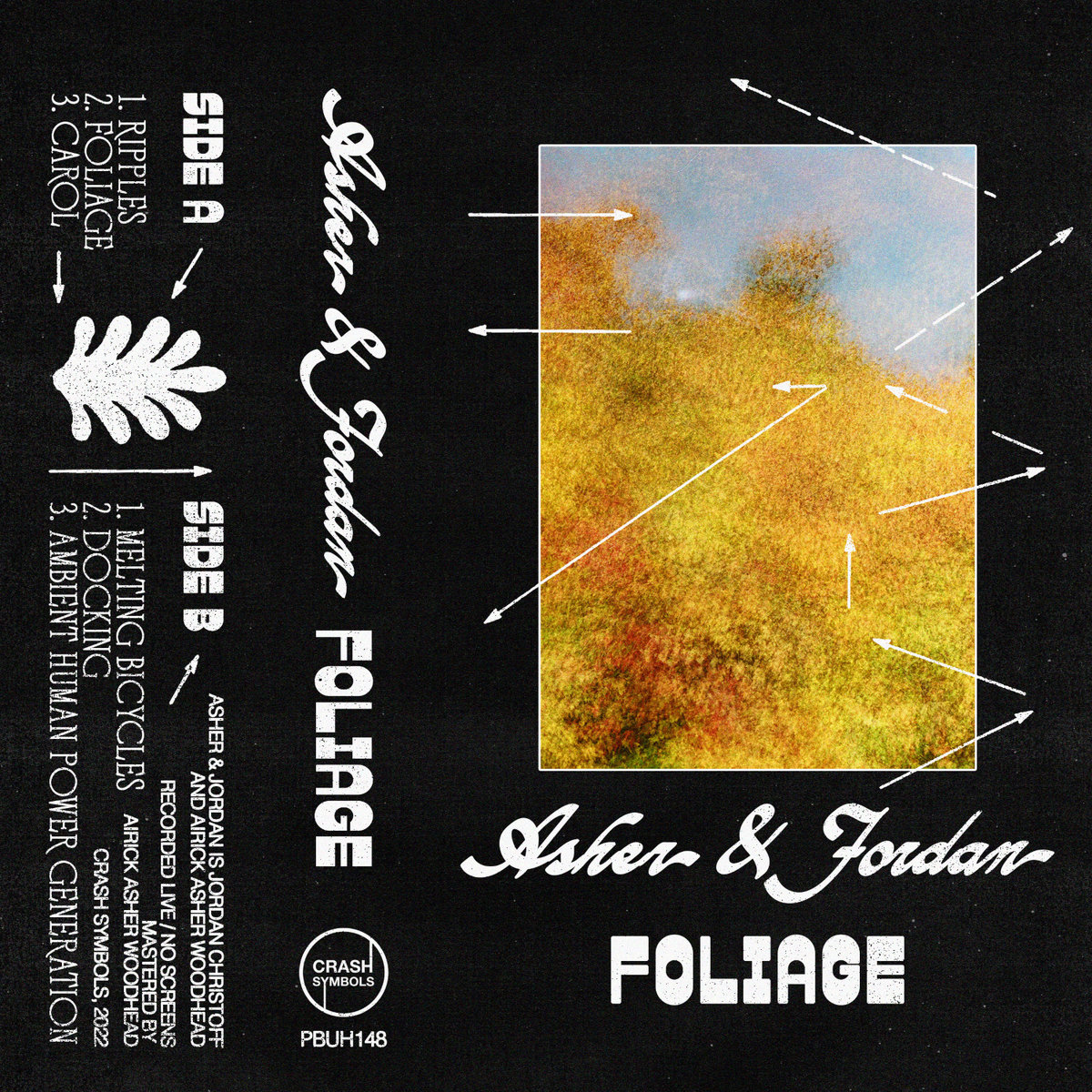 Asher & Jordan
Asher & Jordan
Foliage
(Crash Symbols)
Bringing together Airick Asher Woodhead (of Doldrums) and Jordan Christoff (of PJS), Foliage, the new cassette under their Asher & Jordan moniker, is a testament to their ability to make experimental sounds feels so lush and animate. Using the title of the album as their lead, these songs are attuned to the day-to-day cycles of nature, exploring themes of conception, growth, and decay through blooming ambient rhythms and kinetic movements. These can soft and subtle, or they can be brash and suitably volatile. Hints of other genres occasionally rise through the haze, with the odd burble of art-pop eccentricity bleeding into these constantly shifting soundscapes. Synths shimmer in and out of phase with reality while plinking noises imitate water and other aspects of the natural world. There are even moments when Woodhead and Christoff find beauty in how nature attempts to reclaim that which civilization has trod upon: a flower breaking through concrete or a tree’s roots destroying pavement. All of these various scenes are illuminated in breathtaking detail throughout Foliage.
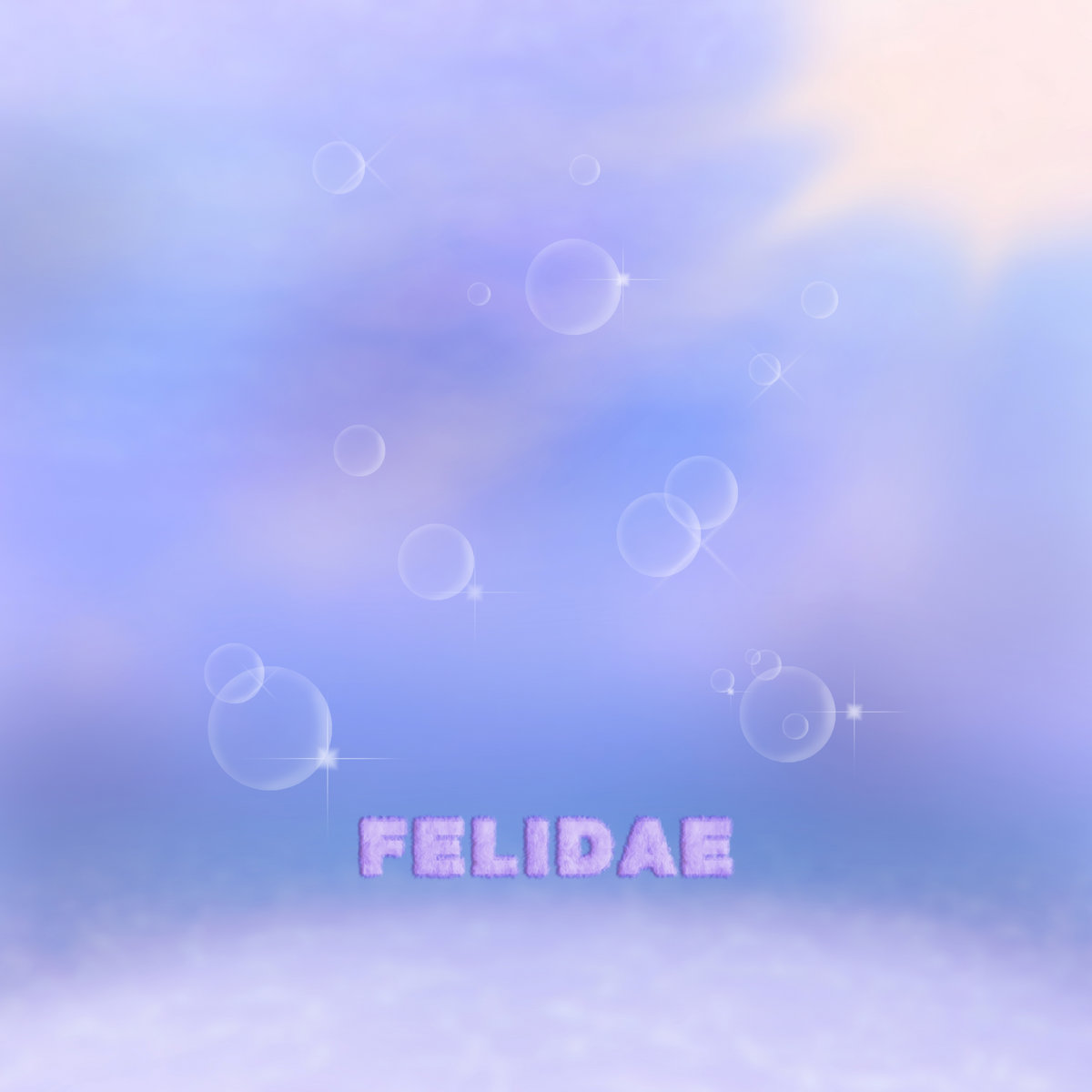 Felidae
Felidae
Katla
(Full Spectrum Records)
Recorded back in the fall of 2020 for Jake Rodriguez’s live-streamed noise series “PONIIA”, the new tape from Feliade – comprised of musicians Sharmi Basu and Fanciulla Gentile – is a raw and vital piece of experimental intimacy, performed at a time when that word had lost most of its meaning. Built around two longform pieces, the album addresses themes of destruction and renewal, of what we once knew and what we have now come to accept. Droning noises are pulled apart and stretched and adapted mid-thought to better relay what Basu and Gentile were feeling in those particular moments. Scraps of melodies appear and disappear without much notice, providing the whole affair with a disjointed, though not undirected, personality. They are able to translate the unpredictability of our lives into an aural landscape filled with conscious and subconscious decisions which affect our perspective at any given time. Katla is hypnotic at times, roiling with expressive and broken rhythms, and acts as a mirror for us to examine the choices we make every day without even realizing it.
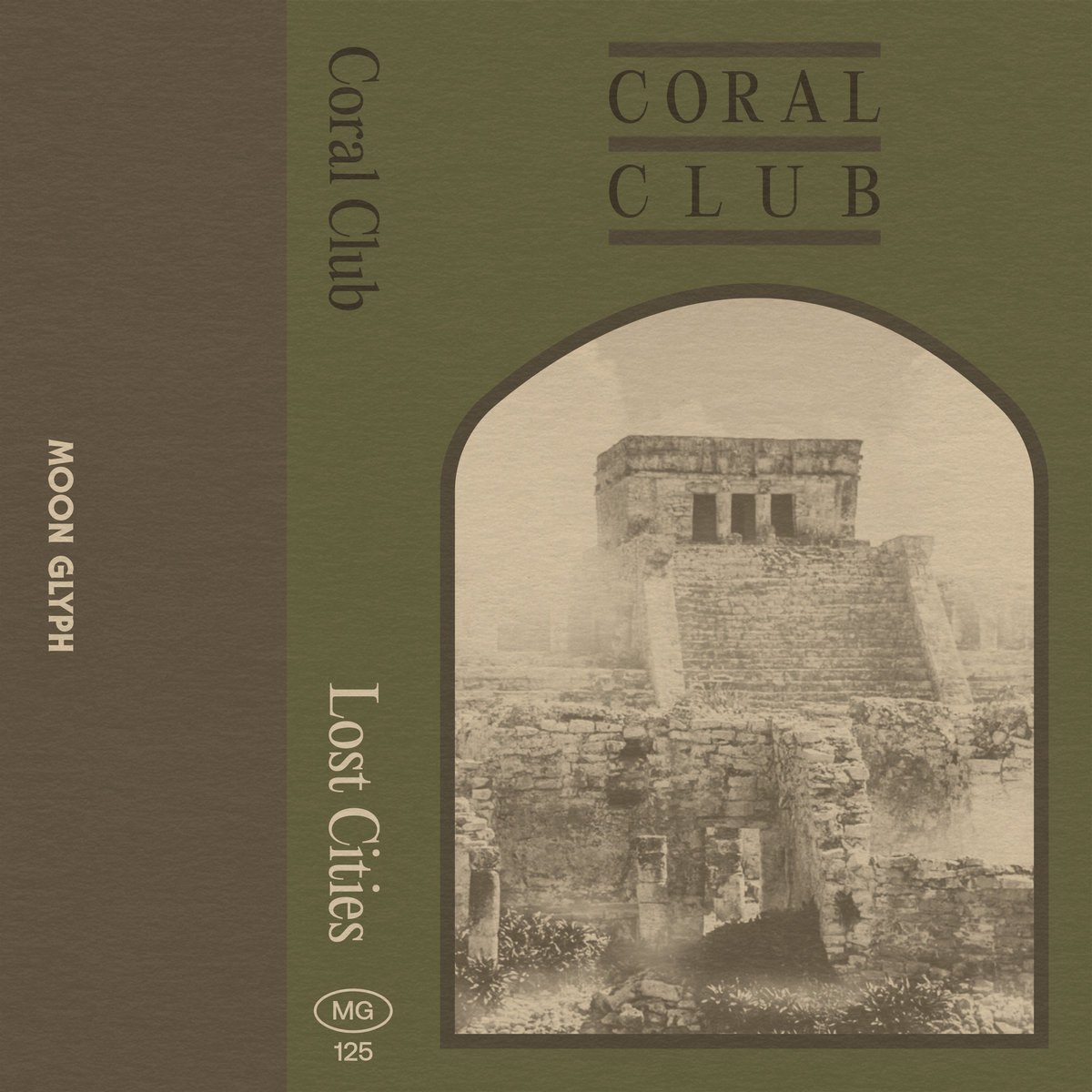 Coral Club
Coral Club
Lost Cities
(Moon Glyph)
Alexander Sirenko was inspired to create his latest album, Lost Cities, by observing the deserted urban spaces that were so prevalent during the COVID lockdowns in 2020. He sought to capture both the unnatural emptiness of these places as well as the feeling of peace that came with nature’s brief and tenuous reclamation of some of these cities. How do we balance our normal activities – before and after COVID – against the natural world’s desire to achieve equilibrium with its hosts? He finds some semblance of resolution through a series of warped vibrations, blooming electronic atmospherics, and melodic invocations. Throughout Lost Cities, we’re given windows into various timeframes and memories where our choices have had startling effects on the world around us. There are moments of gentle grace and beauty, while others are heightened by something darker swirling in the background. Sirenko provides a fascinating glimpse into those inner mechanisms that fuel our desire to understand both ourselves and our place within the world’s much larger patchwork of collective experiences.
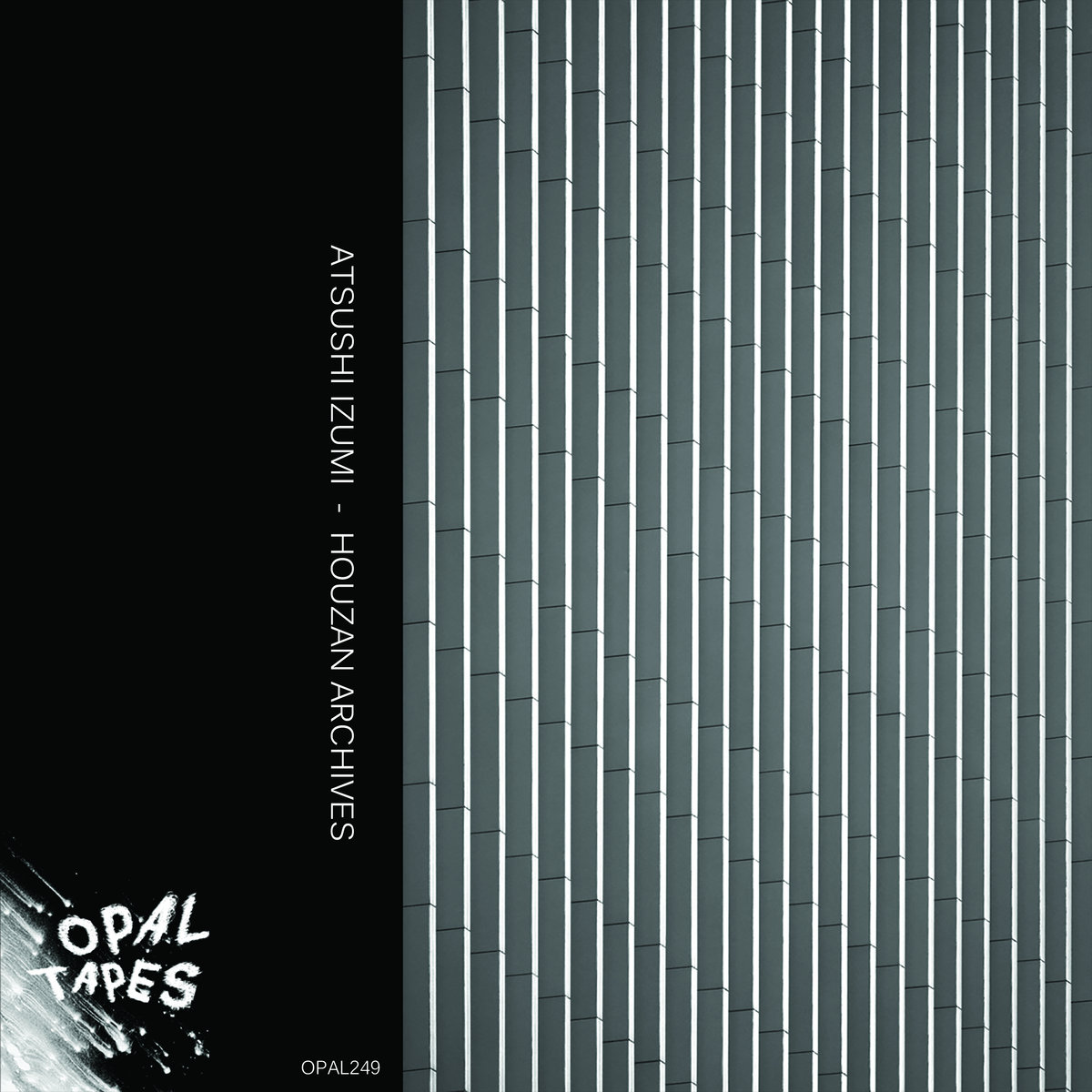 Atsushi Izumi
Atsushi Izumi
Houzan Archives
(Opal Tapes)
A buzzing reaches your ears, the sound of paper shredding or bees engaged in some unnatural communion. It rises, falls, and then molds itself around a clattering beat that gives force to its odd oscillations. This is the beginning of Houzan Archives, the latest collection of tracks from Japanese artist Atsushi Izumi. These songs exist at the intersection of ambient and techno, finding loveliness in wide open rhythms but also cavorting in animalistic fashion on a dancefloor covered in live wires and honey. Izumi isn’t always going for breakneck speed; he likes to slow things down, looking for some sludgier movements that take time to unfold and encircle you. Don’t get me wrong: these songs move, and often barrel out in all directions, but the tempo is watched carefully, with bursts of acceleration balanced with periods of minimalism. Houzan Archives is a noisy torrent of emotions and shadowy recollections that will slowly take over the higher functions of your body.
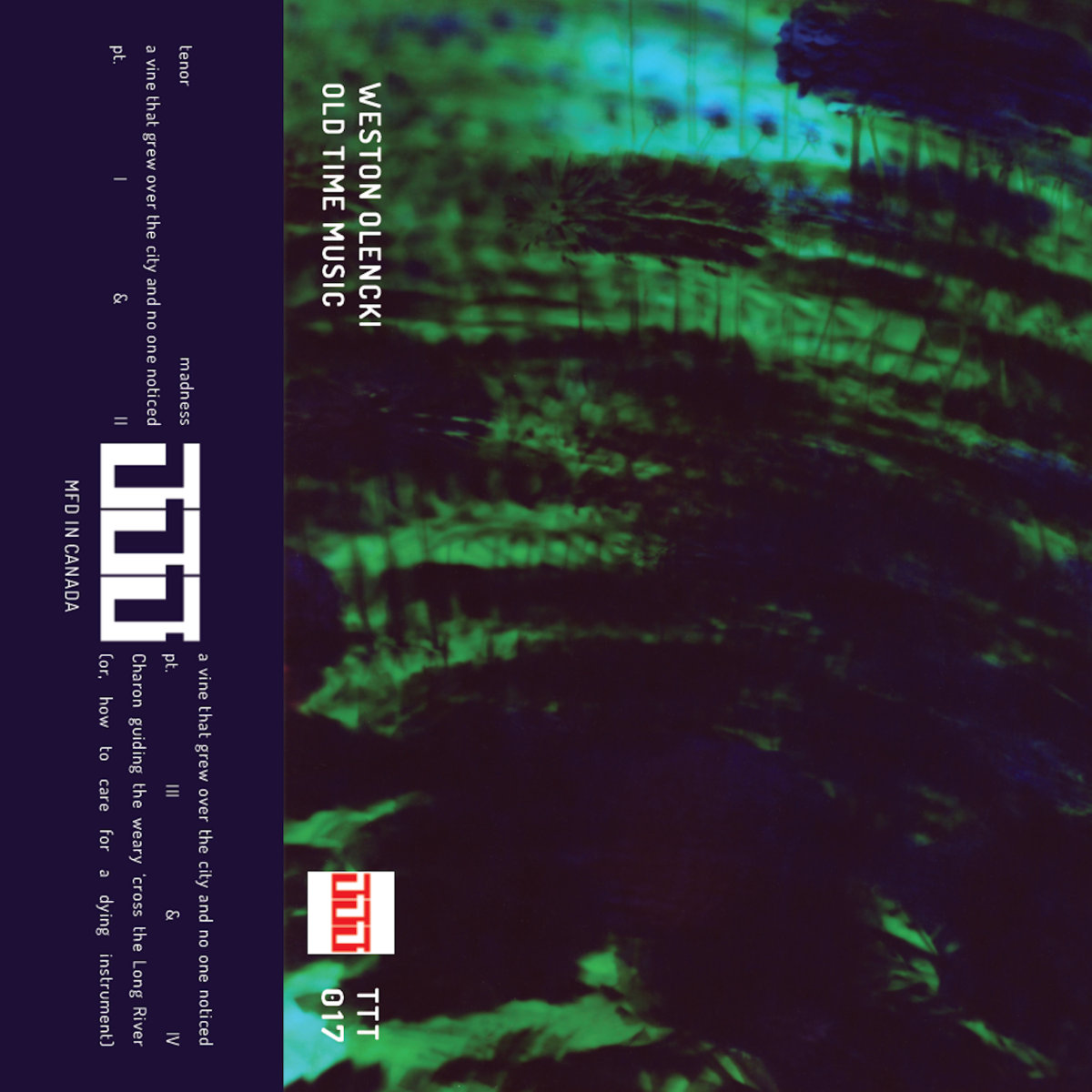 Weston Olencki
Weston Olencki
Old Time Music
(Tripticks Tapes)
Abrasive but oddly inviting, haunting yet attentive to corporeal movement – it’s best that you know what you’re getting yourself into when you sit down with the latest release from experimental musician Weston Olencki. Old Time Music is all of these things and more, a wild and raucous look into our relationship with recorded sound. Olencki focuses on the histories of the saxophone, banjo, and pump organ, specifically as they relate to jazz, bluegrass, and Sacred Harp hymnody. The complexity, both in form and execution, is nothing short of miraculous, with extensive notes found on the album’s Bandcamp page. These tracks address themes of nonlinear chronology, memory, and assorted musical traditions entangled within the framework of America. The droning and fractured rhythms are malleable, with room enough to fit whatever impulse he might seek to explore that defies easy characterization. This album speaks to our need to connect the past, the present, and the future through shared musical experience, and its importance as an artefact of that effort shouldn’t be underestimated.
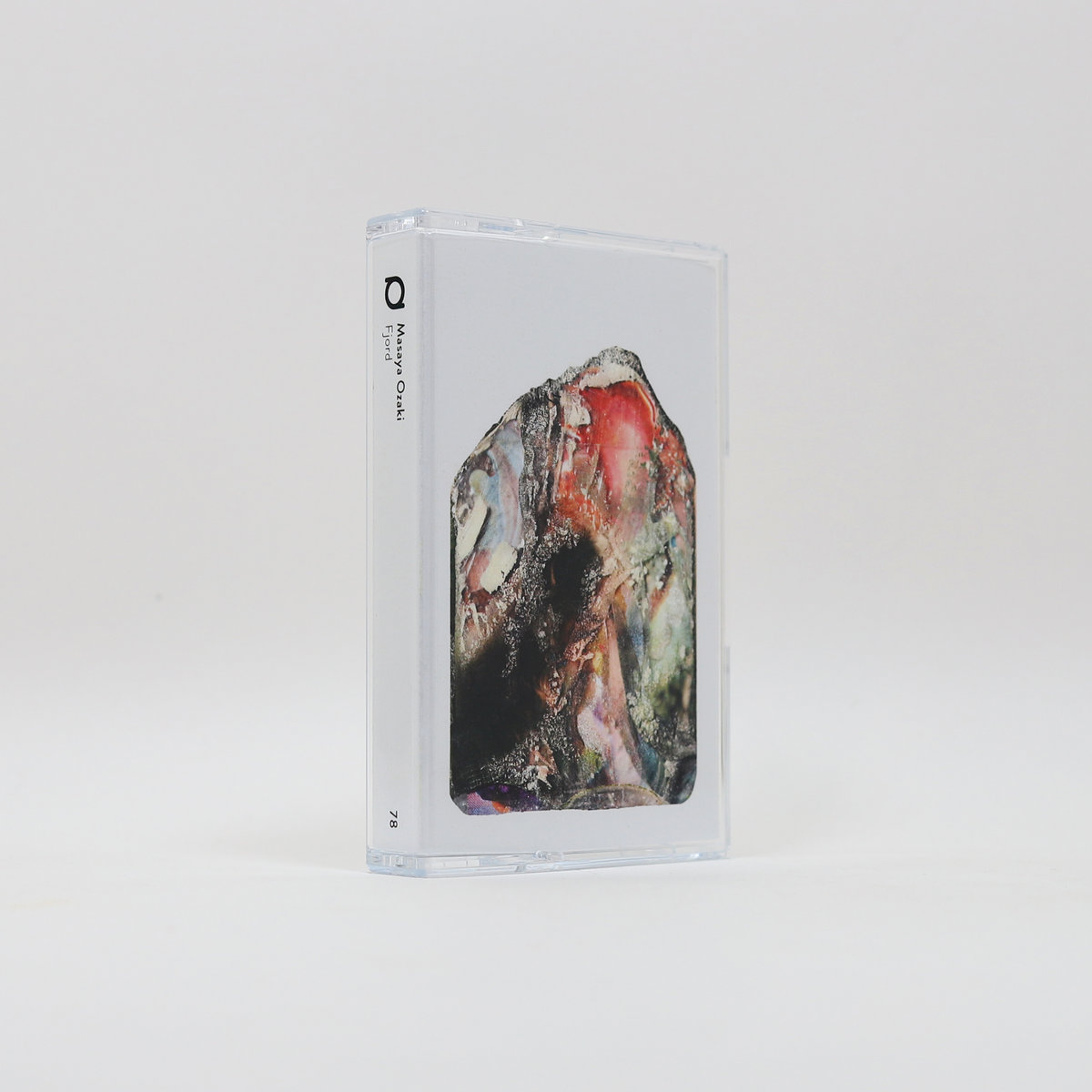 Masaya Ozaki
Masaya Ozaki
Fjord
(Dinzu Artefacts)
Masaya Ozaki’s Fjord can be heard as a poem, a sound pastiche that seeks to reveal our prejudices in how we often confuse objectivity with subjectivity in our day-to-day lives. That’s quite a feat for something with no words, but these tracks move beyond the need for syllables in passing along specific perspectives. Dotted with field recordings taken in New York and Iceland, the album conjures images through its use of aberrant and droning textures, resulting in a noise that aims to penetrate the normal defenses we’ve established in our subconscious and compel us to consider alternate angles of the world and our memories of it. Moments of aqueous detail collide with plinking electronics and phasing rhythms to create a core of almost imperceptible melodic flux. Attention should be given to how we become lost in its landscapes, and how we might find our way out again. Ozaki perfectly captures a sense of hesitant optimism, of the possibly of balance between us and our environment, but there is much work to be done. And Fjord is certainly the sound of that work in its infancy.
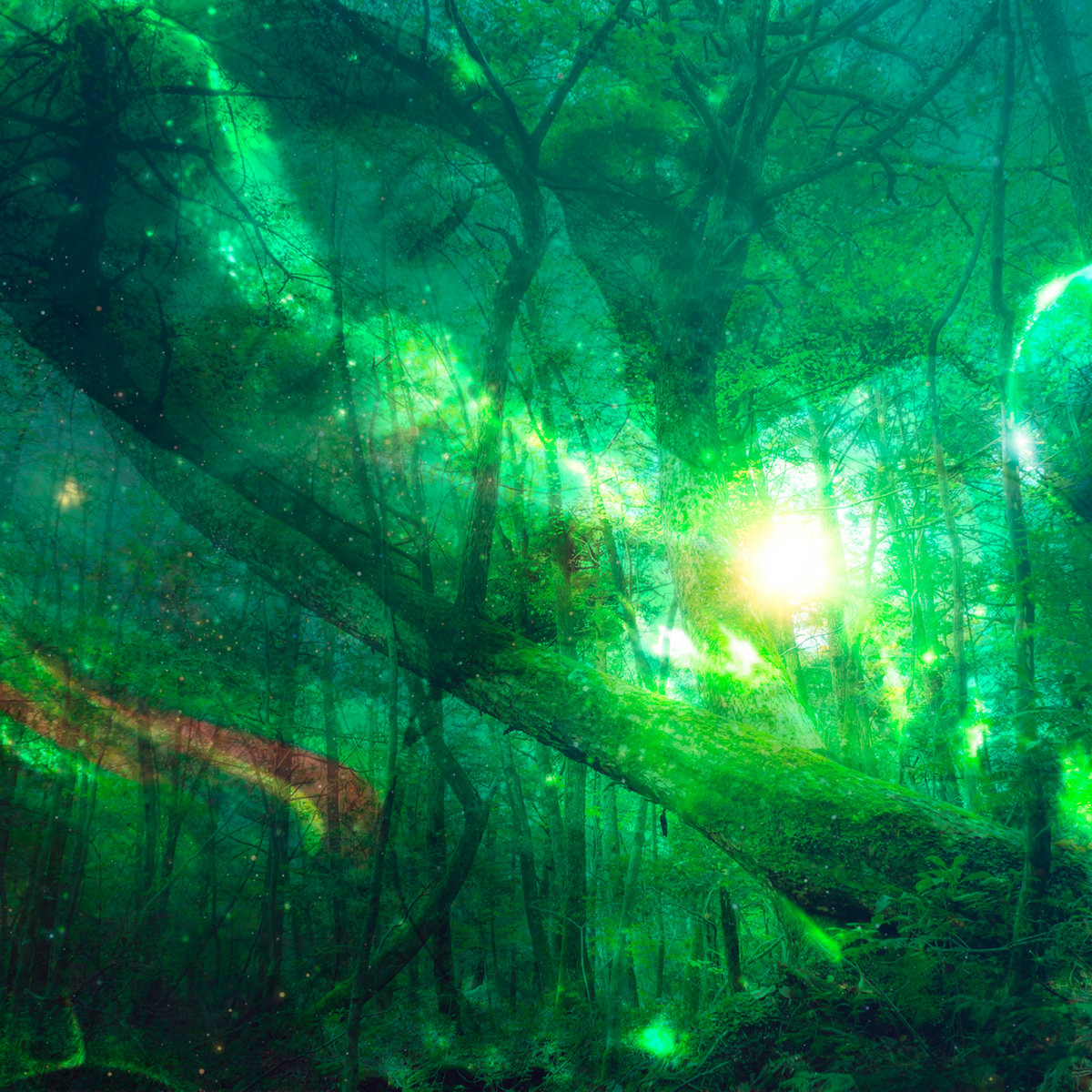 夢へのポータル
夢へのポータル
また会うまで
(No Problema Tapes)
Hailing from Shibuya City, Japanese musician 夢へのポータル (which translates to Portal to Dreams) creates cinematic works of ambient grandeur. Their latest release, また会うまで (Until We Meet Again), seems born of tragedy, as indicated by a few sentences on their Bandcamp page. And these songs certainly bear out that interpretation, draping the listener in gossamer sheets of droning synths that seem to herald some great transition. Taken together, these six tracks form an almost overwhelming blanket of longing that speaks to experiences lost and an ongoing fight to retain our sense of direction even when ache continues to eat away at your heart. Some tracks are more present than others, alternating between background ambience and something that requires a bit more attention. There’s a sense of cocooning to the music, as if 夢へのポータル was trying to insulate the listener from any pain they might be going through, using these blooming synths and extended rhythms as emotional padding. It’s a beautiful and affecting collection that touches on heartache, renewal, and the ways in which we attempt to carry on after experiencing heartbreak of any kind.
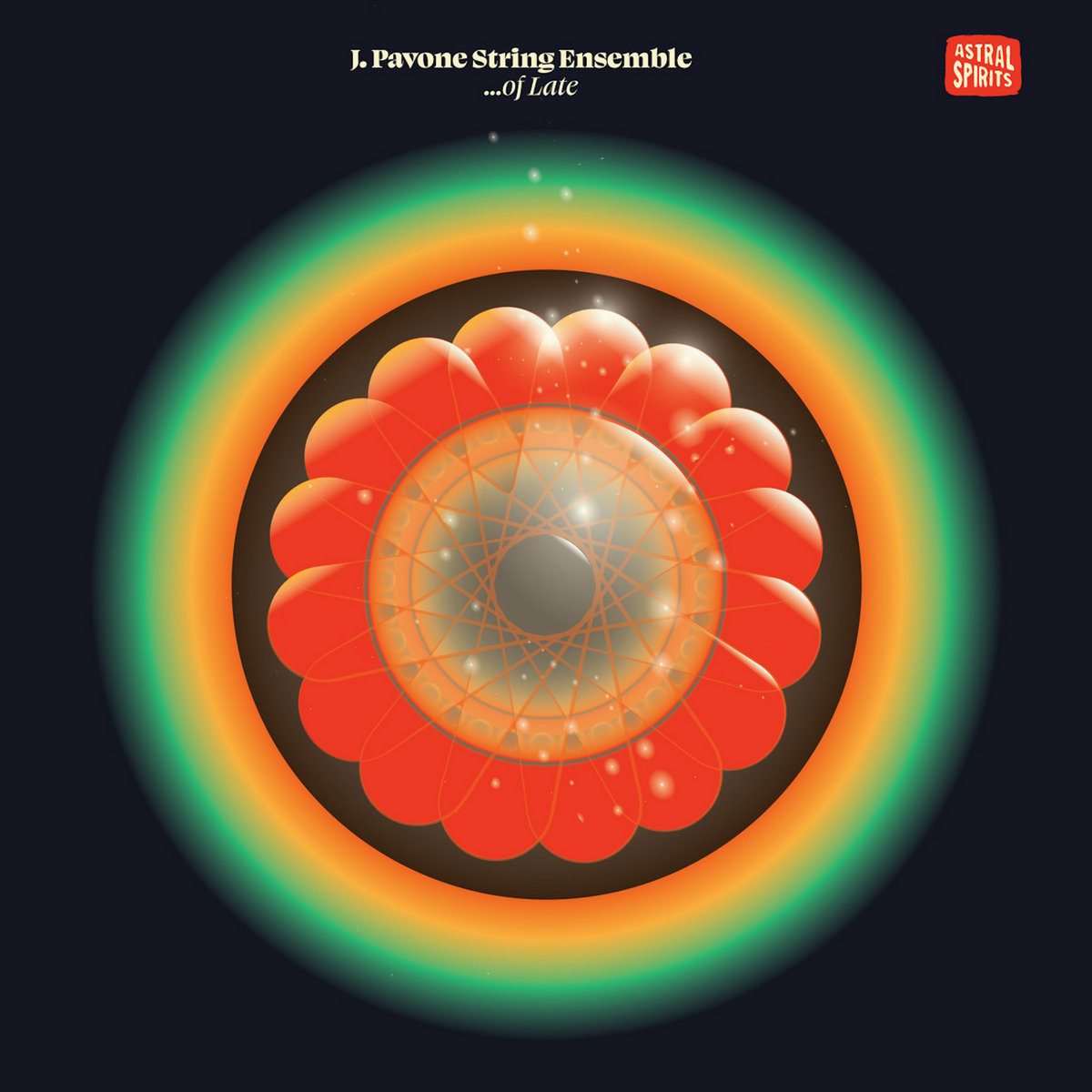 J. Pavone String Ensemble
J. Pavone String Ensemble
…of Late
(Astral Spirits)
Jessica Pavone views music as having the ability to draw out the things we keep hidden, even if we weren’t exactly aware of what we were doing. As part of art-rock group JOBS – and through her work with guitarist Mary Halvorson – Pavone has always seen classical music in ways which subvert the usual expectations when approaching the genre. On her latest collection of songs, …of Late, attributed to J. Pavone String Ensemble, she joins forces with violinist Aimee Niemann and violist/violinist Abby Swidler to create an atonal soundtrack that manages to lodge itself in your brain despite its odd meters and improvisational nature. With Pavone on viola, the songs unfurl in strange and hypnotic ways, thoughtful in their glissando-aided revelations. Using techniques common to drone artists, she fashions a unique classical experience, one that forgoes traditional composition in favor of something impulsive and attuned to the eccentricities of each individual performer. …of Late is a whirlwind of complex arrangements and impressionistic rhythms and dares you to pull apart all of its tangled movements.
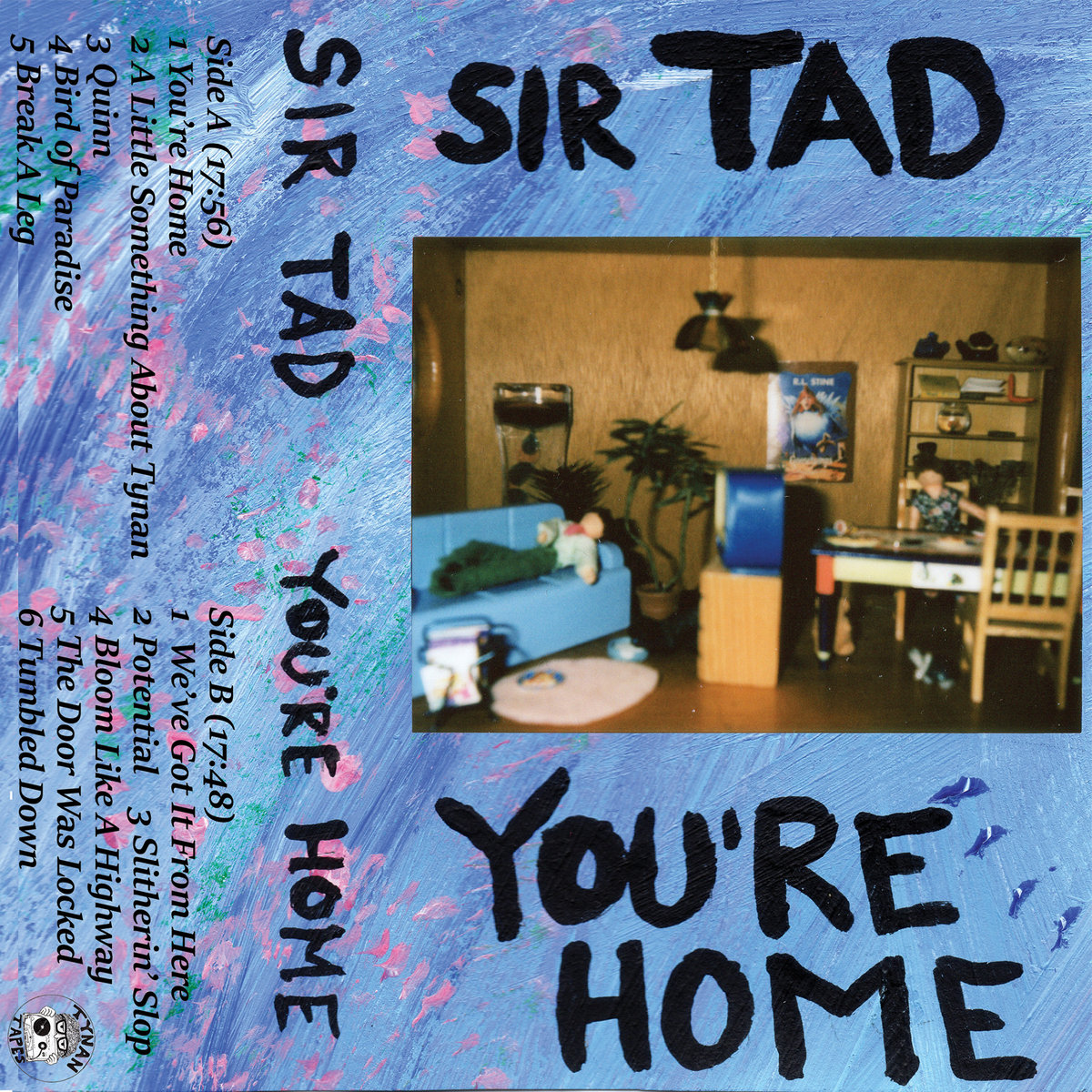 Sir Tad
Sir Tad
You’re Home
(Tynan Tapes Temporal)
Tynan Krakoff uses nostalgia as a way to express love as a looped experience. As Sir Tad, he trades in repetitive melodies and noises that seem to somersault out of an old toy kaleidoscope. His latest collection, You’re Home, is dedicated to his brother, Max, who passed away in March of this year. The songs inhabiting this world are filled with vocal samples from various decades, familial sounds that drive home the point that looking back is simply a way of reliving our affection for something, for some. Culling together a swamp of melodica, autoharp, tape loops, answering machines, and the odd rock tumbler, Krakoff has fashioned a lived-in environment that speaks to his need for closure amid terrible heartache. Equal parts Saturday night carnival and laboratory filled with experimental pop trinkets, this album is an intimate look into how he processes grief, and the joy and pain that comes from that process. Listening to You’re Home is akin to flipping through a scrapbook of his life, and he’s given us permission to witness all the most private thoughts contained therein.
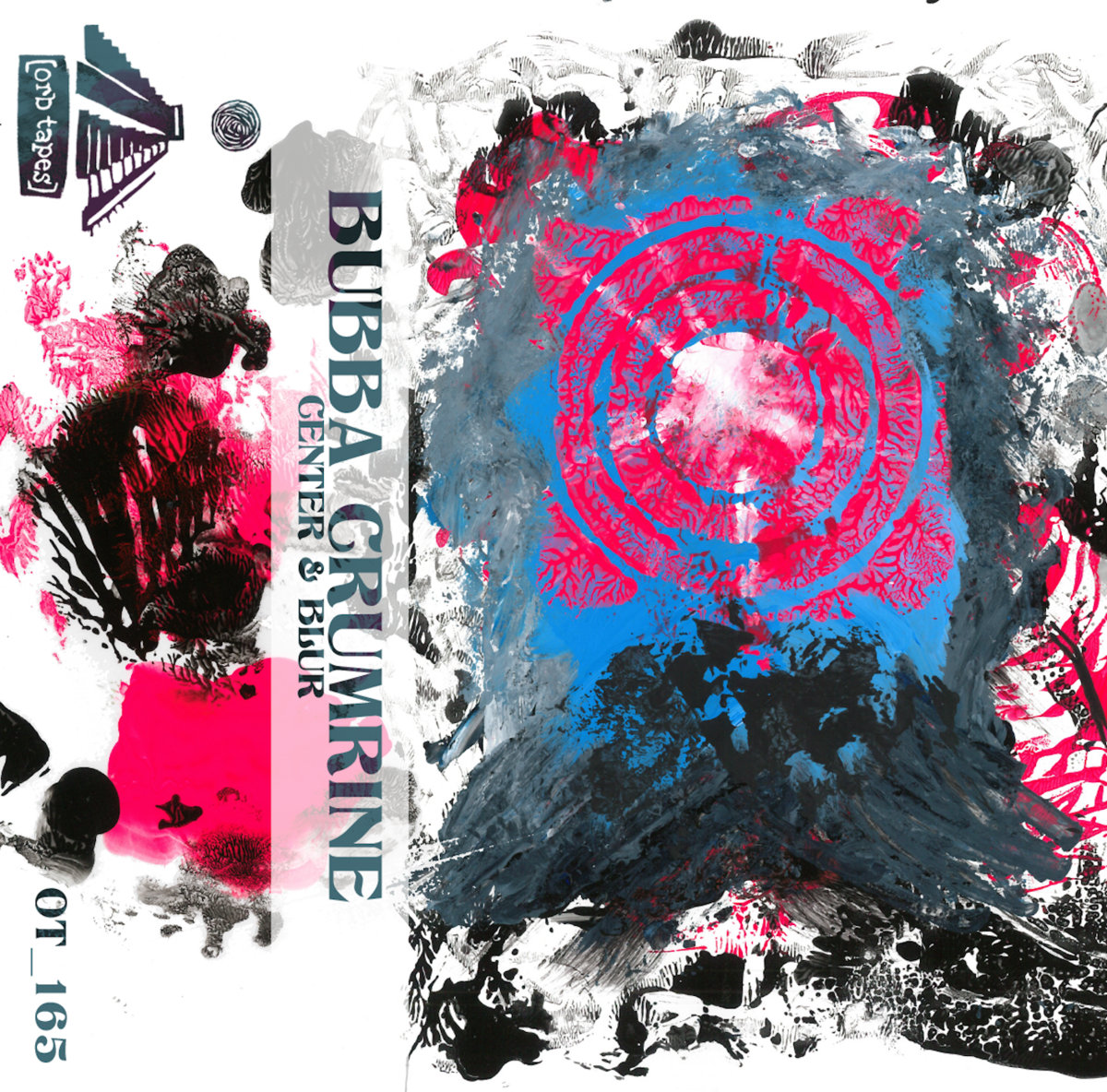 Bubba Crumrine
Bubba Crumrine
Center & Blur
(Orb Tapes)
The third release from New York artist Bubba Crumrine is doused in ambient experiments and noisy asides that develop into odd conversation between themself and the music. Center & Blur finds the enigmatic musician addressing themes of post-gender society, queer discovery, and reformative protest in ways that speak to their own sense of self. Incorporating saxophone, clarinet, and live percussion, the album is a dense and thoughtful appeal for humanity to give non-heteronormative individuals the same regard as those who fall within established gender roles. Droning rhythms act as constant dissent, with Crumrine’s voice becoming a vivid call for those who feel maligned by outdated modes of identification. These tracks clang and dissolve and coil themselves around your heart. They feel imbued with a ferocious energy, the kind that speaks to generational revolution. And while there is still much work to be done in finding acceptance – or even acknowledgement – for people who feel adrift on the periphery of society, Center & Blur is a light in the darkness for anyone needing a helping hand, an open heart, or a shoulder on which to rest.
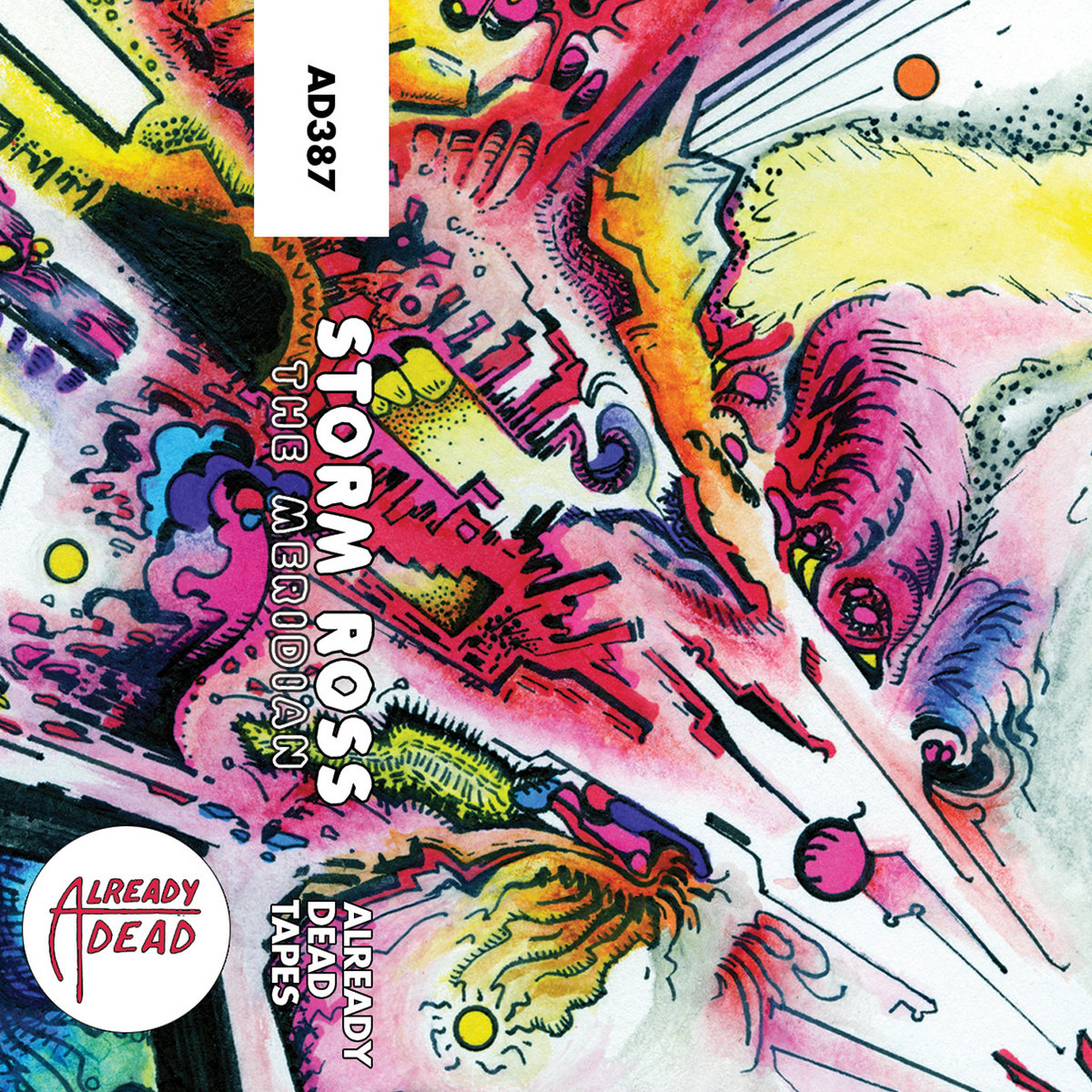 Storm Ross
Storm Ross
The Meridian
(Already Dead Tapes & Records)
I’m willing to bet that Ontario artist Storm Ross has a sizeable collection of jazz, psych, and prog rock records in his personal collection, as you can hear echoes of all these sounds in his latest collection, The Meridian, self-described as a “raucous, if hypothetical, wake in nine parts”. The guitars are more than theatrical – they are practically operatic, swelling and cresting in a series of tidal cascades. He even manages to work in some wiry post-punk influence to counter the opulence of those prog impulses. It would make sense that a record so welcoming of all genres might become a slog to get through, but The Meridian feels brisk, a vision of musical compatibility that forges new bridges between disparate sounds. Recorded at various people’s homes because of COVID precautions, it nonetheless feels quite cohesive, even when the cacophony reaches a squall that threatens to overwhelm your senses. It’s a craggy roar that speaks to love, loss, and our desire to shape our memories as part of a fluid collection of extraordinary experiences.
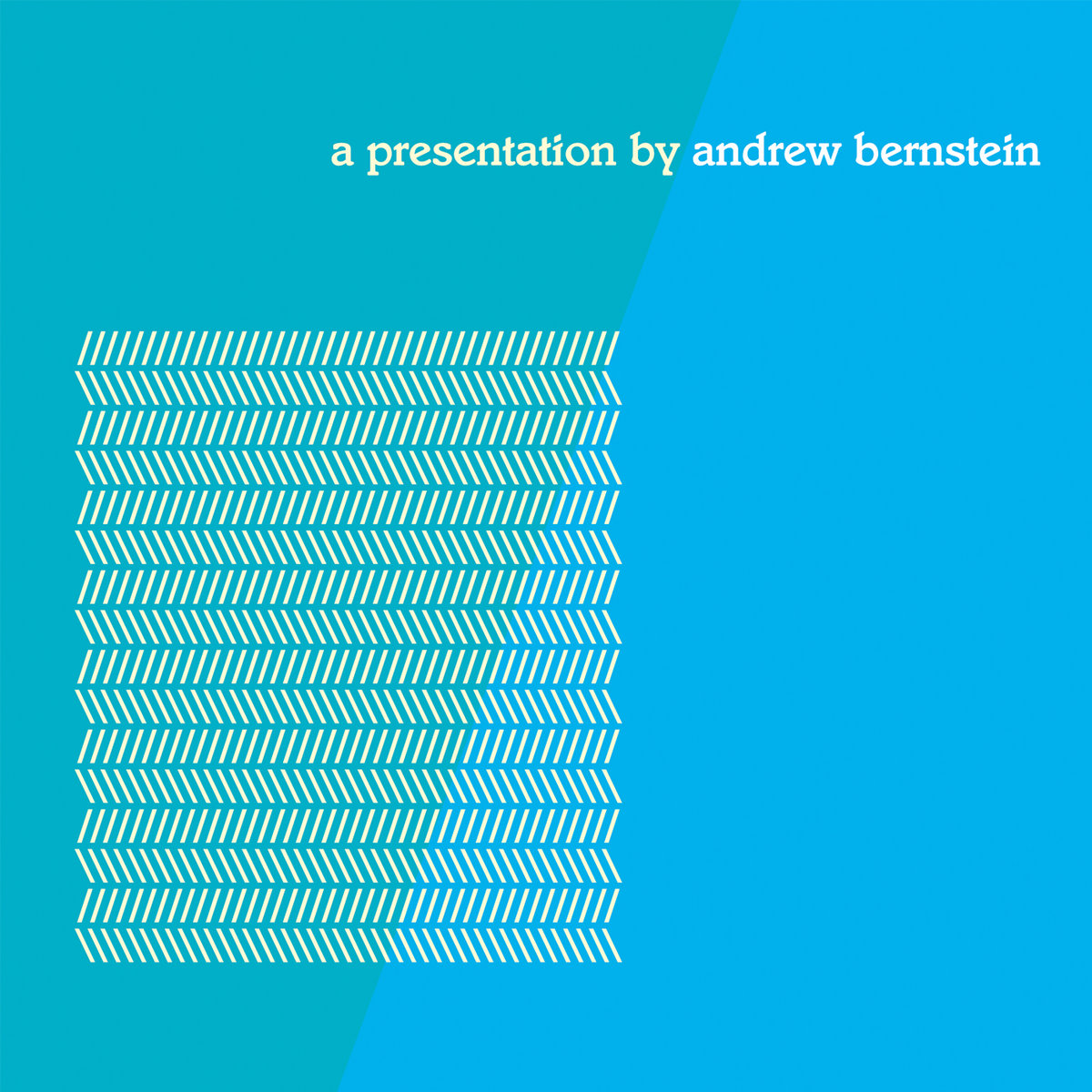 Andrew Bernstein
Andrew Bernstein
a presentation
(Hausu Mountain)
Time has no meaning during the three songs that comprise a presentation, Baltimore artist Andrew Bernstein’s latest collection of minimalist saxophone observations. Largely removed from his work with avant rock band Horse Lords, these songs are much more aligned with the electronic experimentation of Matmos and Dan Deacon, both of whom have featured Bernstein in their respective works. He treats these sounds as something physical, something to be rearranged in a room, corporeal and existing apart from their intellectual origins. By maneuvering them around in this space, he explores a variety of microtonal harmonies, infinitesimal changes occurring within an ever-collapsing musical perspective. As these droning soundscapes begin to blur the line between our reality and the one Bernstein is creating, our perception of time as something chronological begins to change – we see the possibilities inherent in shifting our outlook to something more malleable in the face of these sustained atonalities. And with Bernstein’s assistance, we start to see the beauty and expansive worlds that lay just beneath the surface of these noises.
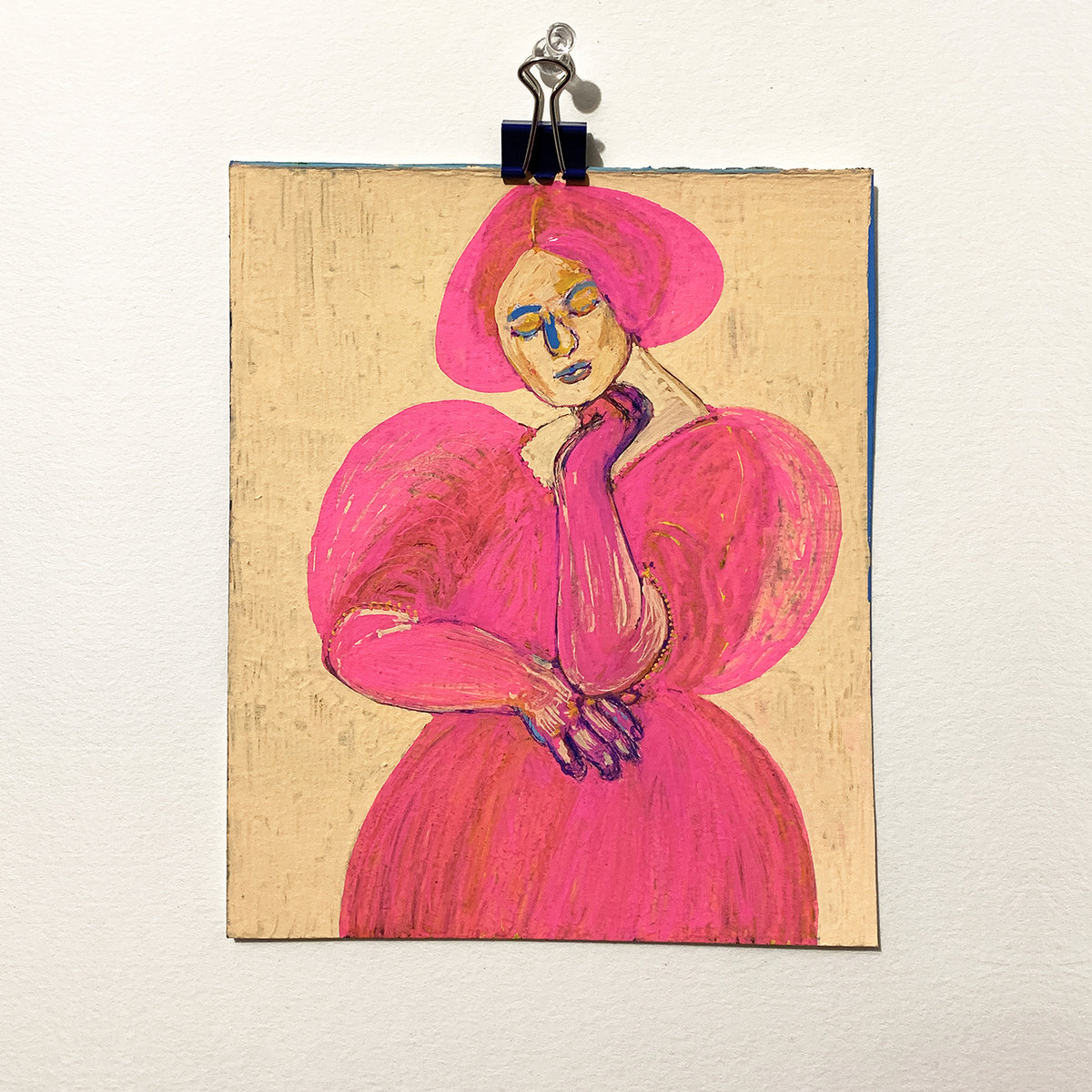 OHYUNG
OHYUNG
imagine naked!
(NNA Tapes)
OHYUNG is the moniker under which Brooklyn musician Robert Ouyang Rusli composes infinite ambient gradients, crafting landscapes where emotion and memory collide and dissolve into one another. Across their latest record, imagine naked!, they illuminate the process of deconstructing these gauzy forms into their simplest elements, using the resultant simplicity to highlight ambient’s innate adaptability. They take inspiration from writer T. Tran Le’s poem “Vegetalscape”, with each song being named after a line in that piece. And despite the occasionally experimental sounds here, you can always feel a human presence circulating inside the music. You have to approach these recordings with patience, allowing them to drone and unfurl at their own pace. imagine naked! always seems to be in a state of transition, where notes hesitantly linger in the air while we expectantly wait for some direction as to where we’re heading next. Addressing themes of mental health and our understanding of the world around us, the songs shine a spotlight on how we use personal and external perceptions as catalysts for the decisions we make every day. There is a conversation happening here, and it’s one that desperately needs as many people involved as possible.

